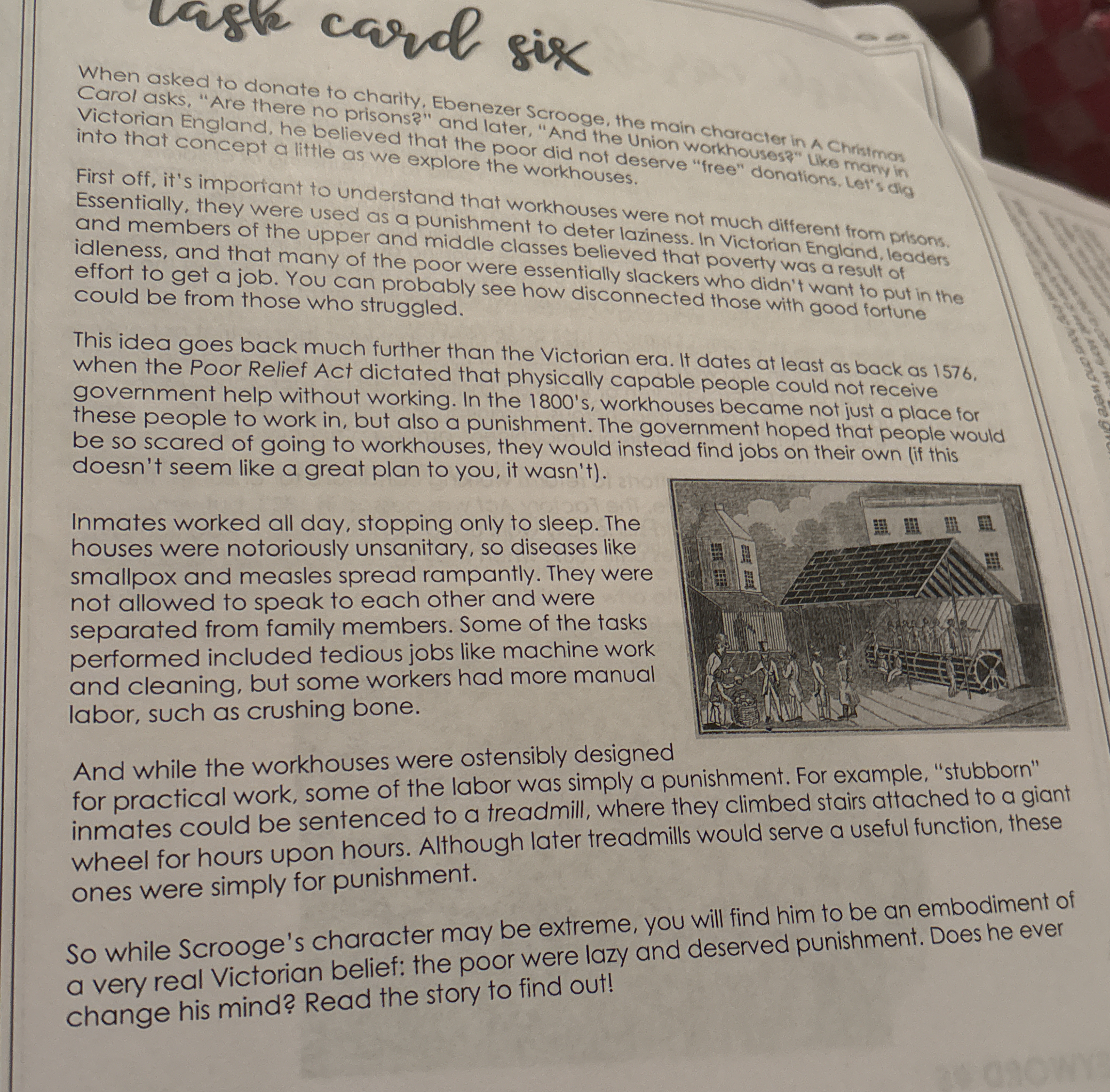What was the role of workhouses in Victorian England, and how does this relate to Ebenezer Scrooge in 'A Christmas Carol'?

Understand the Problem
The question is examining the historical context of workhouses in Victorian England, particularly how they were perceived by society and their purpose as both places of work and punishment for the poor. It discusses the societal view on laziness and charity as illustrated by the character Ebenezer Scrooge in 'A Christmas Carol.'
Answer
Workhouses were harsh institutions for the poor; Scrooge initially reflects Victorian beliefs that poverty deserved punishment.
Workhouses in Victorian England were institutions where the poor worked in exchange for food and shelter, often under harsh conditions. Ebenezer Scrooge's initial attitude in 'A Christmas Carol' reflects the Victorian belief that poverty was a result of laziness and the poor deserved harsh treatment.
Answer for screen readers
Workhouses in Victorian England were institutions where the poor worked in exchange for food and shelter, often under harsh conditions. Ebenezer Scrooge's initial attitude in 'A Christmas Carol' reflects the Victorian belief that poverty was a result of laziness and the poor deserved harsh treatment.
More Information
Dickens used Scrooge's initial disdain for charity as a critique of the dehumanizing aspects of Victorian social policies and to promote compassion and generosity.
Tips
A common mistake is assuming workhouses were intended as genuine welfare when they often served as deterrents against seeking aid.
Sources
- Exploring Victorian Workhouses - bbc.co.uk
- Poverty & Victorian Christmas - senecalearning.com
- A Look at Victorian Work Legislation - britlitsurvey2.wordpress.com
AI-generated content may contain errors. Please verify critical information